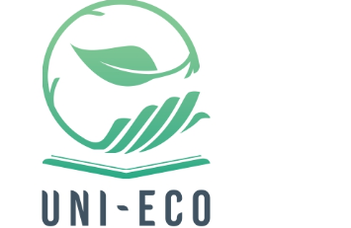UNI-ECO
UNI-ECO

UNI-ECO, Practical and Collaborative Tools for Sustainability Innovation in the University
Sustainability is a crucial issue of the contemporary societies. Now more than ever it has become a vital need to transform our lifestyle in order to be in line with the many initiatives aiming at reaching the established United Nations’ Sustainable Development Goals (SDGs) for 2030.
The term “Education for Sustainable Development” (ESD) describes education as empowering people to design the future actively in a globalized world, autonomously and responsibly.
This project aims at responding to the need to build social and environmental sustainability into the core ethos of modern university, by designing sustainable campus and supporting students and HEI staff to bring it to life by taking action.
The bottom-up approach implies starting this transformation from the basis of each campus focusing firstly on the campus needs and secondly on its perspectives by activating all possible actors.
The project aims not only at increasing the adoption of green practices and make sustainability more visible and actionable but also at developing an innovative methodology that will empower the HEI community to actively support the strategic plan of each institution.
UNI-ECO aims at:
-
Raising awareness and sensitizing the HEI population on sustainability innovation. By taking all necessary actions involving staff and students, sustainability will continue to develop in their hands after the completion of the project.
-
Collaborating with partner universities but also with institutions in order to exchange good practices and bring to the surface innovative ideas coming from staff and students.
-
Implementing Living Labs based on a systematic user cocreation approach integrating pedagogical tools and innovation process. As students/staff are the key users of facilities on campus, their knowledge, skills and habits are key to the successful attainment of sustainable campuses.
By understanding the problem in its heart, by completely involving the direct factors (the institution and its population) and transforming them into solutions, the UNI-ECO project aims at changing the perception and the behavior of university population.
Partners
University of Montpellier, France
CESIE, Centro studi e iniziative europeo, Italy
Eötvös Loránd University, Hungary
Trinity College Dublin, Ireland
University of Barcelona, Spain
UNIMED – Mediterranean Universities Union, Italy
University of Utrecht, Netherlands
